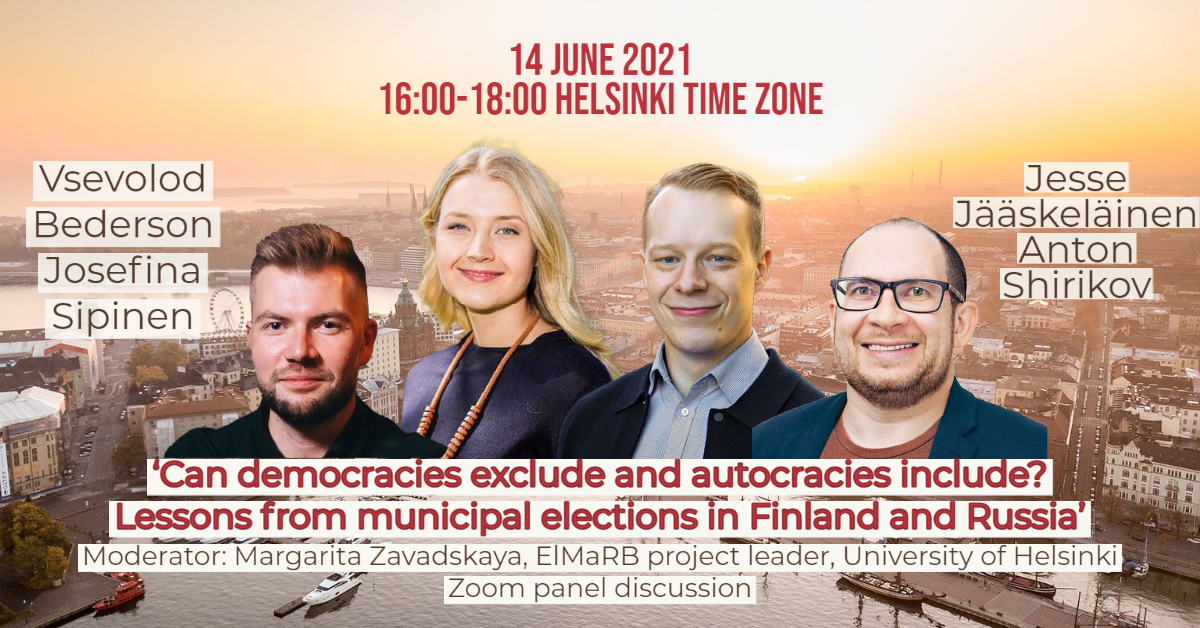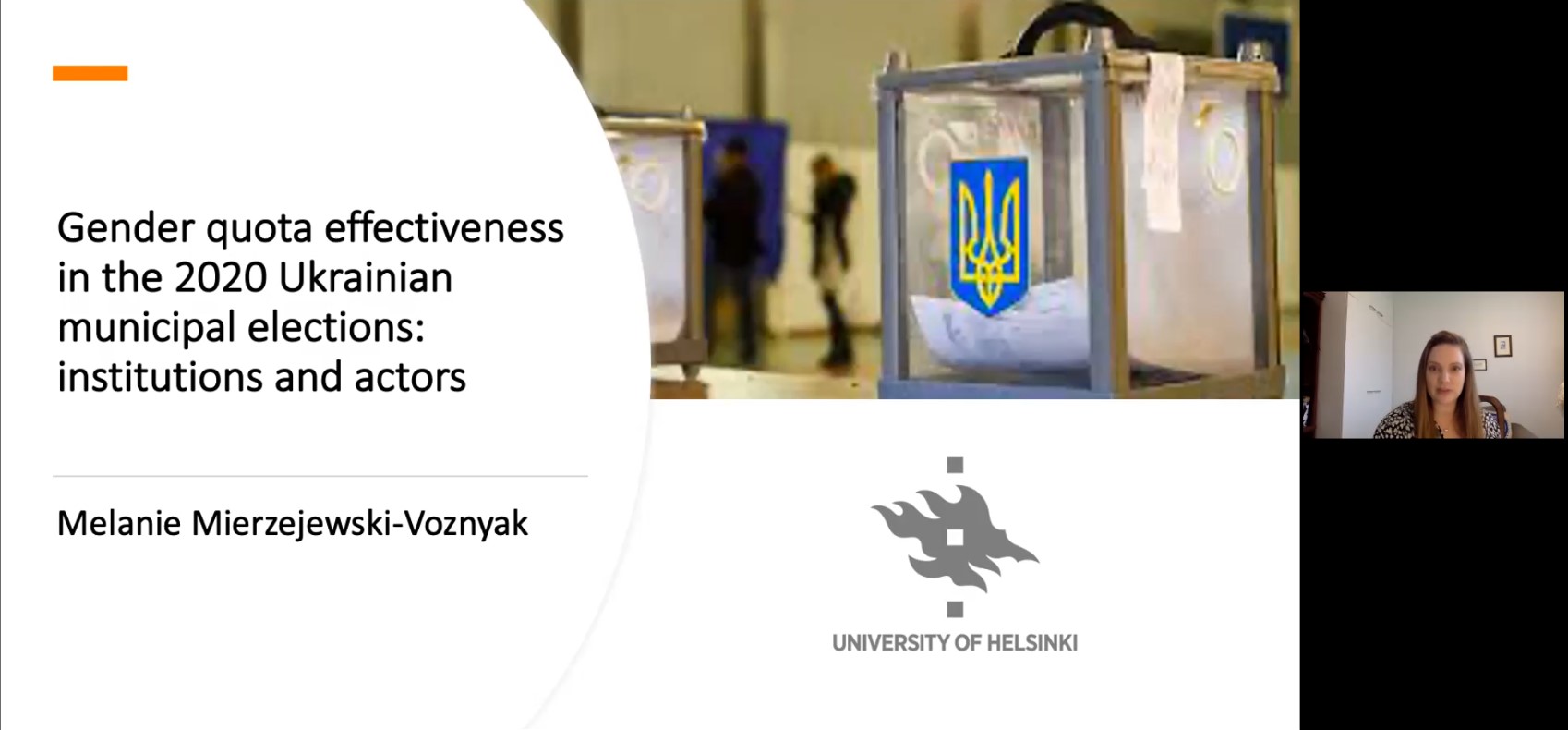
On the 14th of June our project organises the last event before the summer break – ElMaRB panel discussion ‘Can democracies exclude and autocracies include? Lessons from municipal elections in Finland and Russia’, The event will take place in Zoom, from 16:00 to 18:00 Finnish time.
The postponement of municipal elections in Finland in 2021 due to a worsening pandemic caused criticism from some of the opposition parties, who claimed that Finnish democracy was threatened. In Russia, in turn, the next municipal elections will be held in a number of regions on the all-Russia voting day on the 19th of September amidst worsening repressions against the opposition. What lessons can we learn from Finland, an established democracy which enjoys one of the best in the world media freedom, and Russia, a peculiar authoritarian state where some local elections sometimes are pretty competitive. How do municipal candidates deal with the challenges in both countries? What topics are important in 2021 except for the pandemic and its consequences? What is the state of elections in Finland and Russia and 2021?
We invited four speakers from Finland and Russia to discuss these and other questions:
Vsevolod Bederson is a coordinator of “+1” electoral coalition at the Perm City Duma election 2021. He has a PhD in Political Science and is a Research Fellow at the Center for Comparative History and Politics, Perm State University. He organises popular science projects in Perm and hosts a podcast on political science topics.
Josefina Sipinen has just defended her doctoral dissertation about the recruitment of immigrant origin candidates in Finnish local elections. She continues her studies on ethnic and migrant minorities’ (EMM’s) political engagement in Tampere University as a postdoctoral researcher. Currently, she is studying whether EMM candidates in the 2021 Finnish municipal elections faced more harassment than native-origin candidates.
Jesse Jääskeläinen is an SDP candidate at the Helsinki municipal election 2021. He works as a senior specialist at the Eurooppalainen Suomi. In 2017-2020, he served as a municipal councilor in Muurame, Central Finland. He is a Master’s Student of Political Science at the University of Helsinki.
Anton Shirikov is a PhD Candidate at the University of Wisconsin-Madison. He studies propaganda, misinformation, and perceptions of media in Russia, as well as post-communist politics more broadly. Previously, he was a journalist and an editor at various Russian independent media.
The event will be moderated by ElMaRB project leader Margarita Zavadskaya. To register for the event, please fill in this E-lomake.


